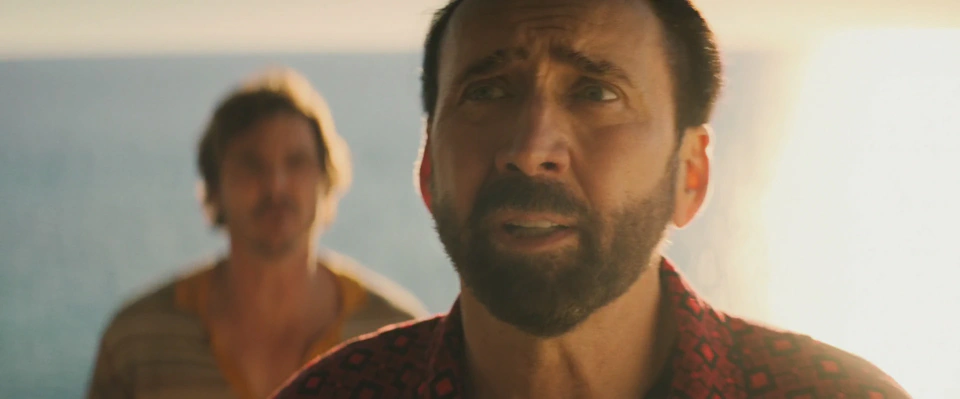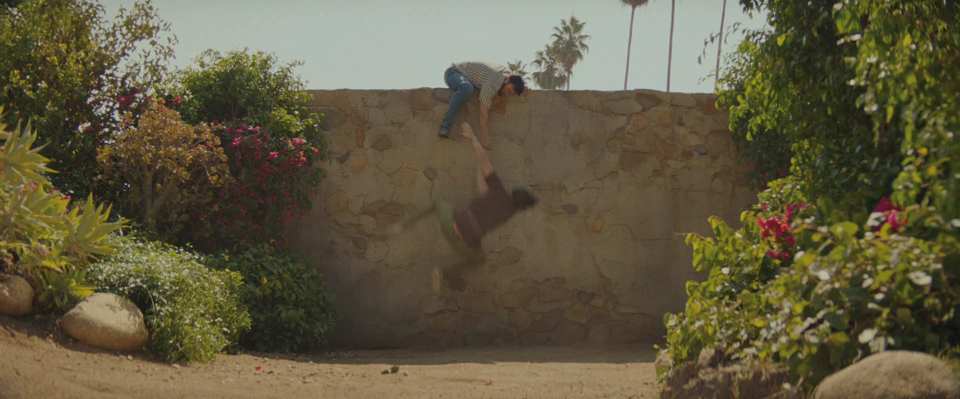Javi, a Majorcan arms dealer passionate about movies and obsessed with Nicholas Cage, invites him to his villa for a million dollars. Nicholas accepts because he is at a low point in his acting career, family life, and finances.
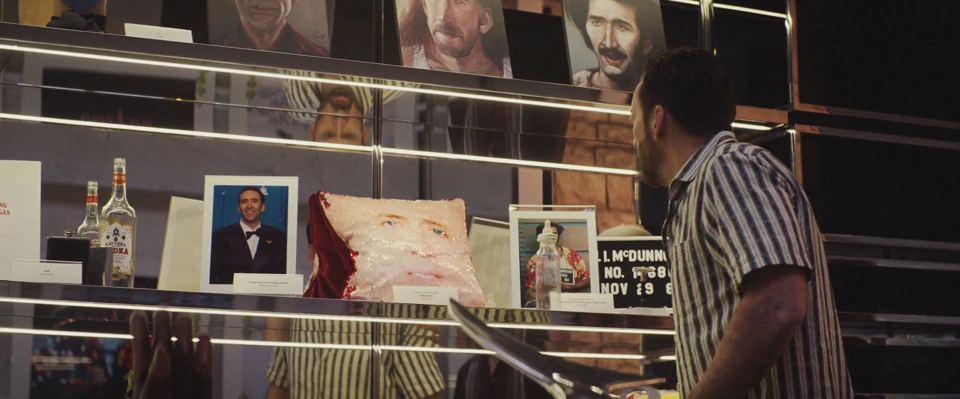
The two men become friends and start working together on a screenplay that Javi wrote. Things escalate, and Javi and Nicholas are pushed to kill each other, but their friendship is stronger, and they end up defeating the bad guy, Javi’s cousin, who was the actual arms dealer. In the end, Javi and Nicholas premiere their movie, which has good public reception, and Nicholas, who has changed, prioritizes his family over work.
The climax occurs when the good guys and the bad guys shoot at each other at the US consulate embassy in Majorca. But to me, the real climax takes place at the end of the movie when Nicholas chooses family over work by going home with his family instead of going to the movie’s post-launch party.
Nicholas has a bad reputation in Hollywood, and the movie builds on that. His character’s psyche is fragile, over the top, and self-centered, which contrasts with Javi’s calmness and kindness.
The movie touches on various other topics like movie taste and the purpose of acting, but that’s probably more geared towards the acting industry.
What did I like the most?
When Nicholas and Javi both take LSD, they become paranoid and start running away from made-up threats in a sequence of hilarious scenes. I was laughing non-stop.
I also enjoyed the revelation at the end: in one shot, Nicholas was escaping from the bad guys in a car with his real daughter, wife, and Javi’s secret love. A camera change later, and the women with him were all different. I didn’t understand what was going on. L did and explained that we had just jumped to them filming Javi’s movie, and I thought, “Oh, wow! That was cool, confusing, but cool.”
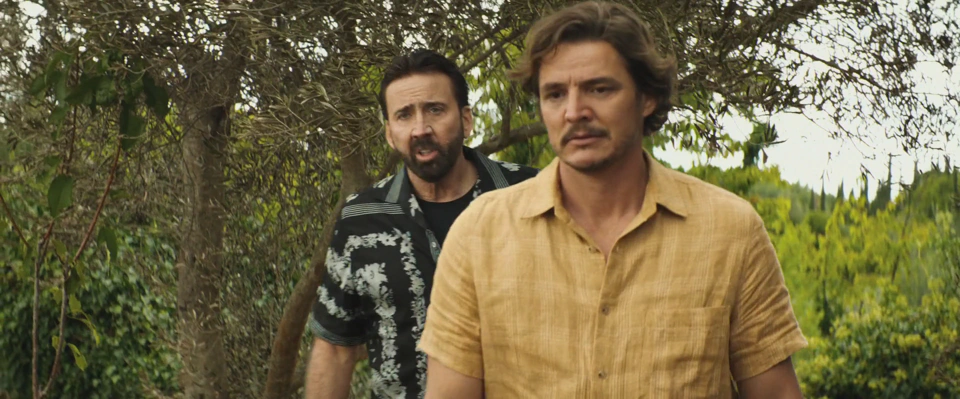
There were jokes throughout the movie which have left me, a few days later, with the memory of having spent a good time.
What did I like the least?
I found it hard to connect with someone playing as himself, constantly centered on his acting skills and his over-the-top personality, trying to make fun of himself. It’s too self-centered, and perhaps that’s the intention.
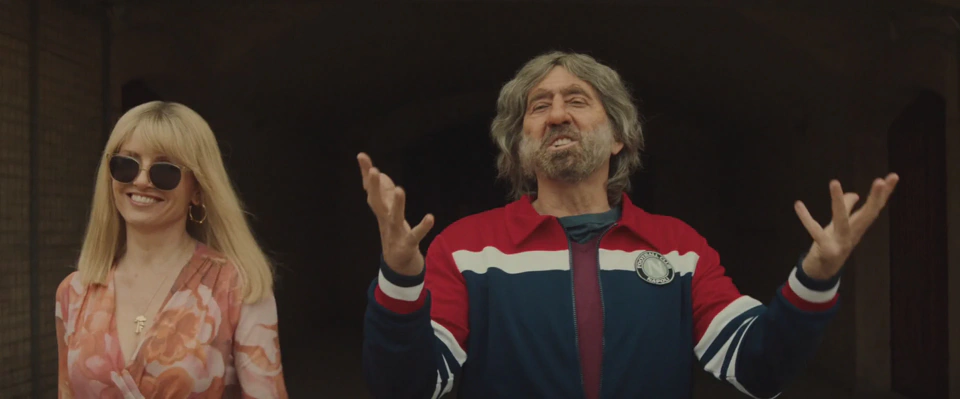
Connections
- Narrow vs broad focus: Nicholas’ family complains that he’s too obsessed about work and too little about his family and they want him to shift his work-life balance. Javi is hesitant to make his movie more appealing to a mass audience by introducing a kidnapping, he prefers to keep it focused on the friendship between two adult men. How do you find the best point in the narrow - broad scale? I think it depends on what you want out of life and how you’re wired (see John Carmack and Lex Friedman discuss this topic.) Looking at my own behavior, I feel happier when I’m closer to the narrow focus end of the spectrum. I have noticed significant improvements when I’ve shifted a bit away from that extreme, but when I’ve shifted away too much (very balanced life), I’ve felt empty and purposeless.
- Universal vs particular: do you want to tell a story that says something universal to every human being or something that is only true to certain people? I think both have their place: all of humanity have certain things in common, like the search for meaning, death, etc. But not everybody feels the happiest pursuing the same goals, or valuing the same things. I’ve learnt and thoroughly enjoyed movies on both camps.
- Niche vs mass market. Why do mass-market movies are more likely to succeed than startups trying to do the same? 1 (Javi’s reticence to make the movie have more mass-appeal.) Perhaps it’s because of movie-making and advertising dynamics. A movie is a product, frequently from an established film company with a lot of money. Humanity also has, collectively, millennia of experience crafting stories. Startups aren’t established yet, they are usually trying to address a problem that isn’t as well understood as storytelling, and they usually don’t scale like a single movie does. Once a movie is produced, it’s done and consumed, generally once, by millions of people in a few days. A startup, even a software startup, doesn’t work that way, they have to design their products, figure out how to manufacture or serve at scale, deal with competition, support their clients, etc.
- Gone in 60 Seconds movie (Nicholas Cage): I loved it.
- Once Upon a Time In Hollywood (movies about the film industry.)
Footnotes
I couldn’t find solid stats on startup survival rate based on whether they try to serve a niche market or the broad market, but it’s a belief I’ve read many times and that makes sense, so I assume this claim is true. ↩︎
